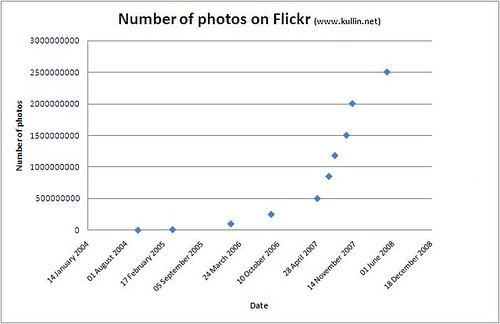Since I put many of my photo’s on Flickr I was disturbed to read the following story. The more I thought about it the more I realised that it was obvious that Flickr would have the same types of rules as all the other social networking sites but it is still a reason for concern.
Photographer Maarten Dors (his Flickr Profile) received the following email from Flickr concerning a picture if a young boy smoking (Would like put it online here if I had permission… hint hint).
====
case354736@support.flickr.com
Hi Maarten Dors,
Images of children under the age of 18 who are smoking
tobacco is prohibited across all of Yahoo’s properties.
I’ve gone ahead and deleted the image “The Romanian Way”
from your photostream.
We appreciate your understanding.
-Terrence
====
According to Reason Magazine, Dors argued that the photo was not a glorification of smoking but a documentation of living condition in less prosperous countries. This somehow was motivation enough for Flickr to return the photo online. Then, apparently, another employee who was unfamiliar with the exception took it down again. Which was followed by someone else from Flickr returning the image again.
Even though I know better I sometimes get fooled into thinking that sites and services on the Internet are public “goods” services which we all can use and abuse on an equal and fair footing. Naturally this isn’t so. Flickr is, like all other online businesses, online for profit. They have no interest in protecting user rights – in fact if user rights conflict with profits they have a duty towards the shareholders to maximize profits and damn the users.
Naturally we as users have legally agreed to the rights of companies such as Flickr to behave in this way when we clicked on the “I Agree” button.
But, and this is a big but, the legal status of these agreements can be questioned.
I have commented the inequality, injustice and the ways in which we could argue against such agreements in my research but it can all be summed up in the with the idea that the agreements we sign cannot be binding if they are the product of a mix of encouraged misunderstanding and misdirection. By creating an environment of openness the companies should not be allowed to impose draconian user terms on their own customers.
However this is an argument from a human rights perspective and no matter how much we like them, most courts still prefer the security and predictability of contract law. So until the courts develop a sense of courage they tend to praise but not emulate the users of all technology are at risk through the licensing agreements they are forced to sign.
(via Politics, Theory & Photography)


